
Children categories
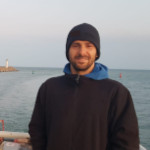 Dr. Francesco Paladini de Mendoza's research focuses mainly on the dynamic processes at the water-sediment interface triggered by littoral and deep bottom currents. Over time, he has gained much experience in field measurements and management of instruments and platforms for monitoring the chemical and physical properties of the marine environment. He actively participates in the management of some observational network infrastructures (EMSO-ERIC and SiOS). He has published 21 scientific papers emphasizing measurement and multidisciplinary approach in the study of the marine environment. He has participated in oceanographic and geological-marine expeditions in the Mediterranean Sea and Oceans, accumulating more than 400 operational days at sea.
Dr. Francesco Paladini de Mendoza's research focuses mainly on the dynamic processes at the water-sediment interface triggered by littoral and deep bottom currents. Over time, he has gained much experience in field measurements and management of instruments and platforms for monitoring the chemical and physical properties of the marine environment. He actively participates in the management of some observational network infrastructures (EMSO-ERIC and SiOS). He has published 21 scientific papers emphasizing measurement and multidisciplinary approach in the study of the marine environment. He has participated in oceanographic and geological-marine expeditions in the Mediterranean Sea and Oceans, accumulating more than 400 operational days at sea.
![]() http://orcid.org/0000-0002-9495-3878
http://orcid.org/0000-0002-9495-3878
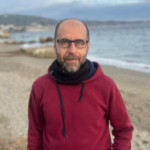 He obtained the PhD title in Environmental Sciences: Marine Environment and Resources (XXXIII Cycle) at the University of Messina in 2011 (2011). The main research interests concern the ecology of meso/macroplankton in transitional and marine environments and the management of fixed observation sites (buoys and oceanographic beacons) aimed at the acquisition of chemical-physical parameters and the biological characterization of the communities. His main skills and competences concern the knowledge of zooplankton sampling and analysis techniques, the use and development of measuring and sampling instruments of both the physical and biological component. He has participated in numerous oceanographic campaigns in the Mediterranean Sea and in long-term monitoring and research programs in marine and transitional environments. He is the author/co-author of over 20 publications in peer-reviewed journals and numerous technical reports. He is currently involved in the implementation of the oceanographic observatory on the Svalbard Islands.
He obtained the PhD title in Environmental Sciences: Marine Environment and Resources (XXXIII Cycle) at the University of Messina in 2011 (2011). The main research interests concern the ecology of meso/macroplankton in transitional and marine environments and the management of fixed observation sites (buoys and oceanographic beacons) aimed at the acquisition of chemical-physical parameters and the biological characterization of the communities. His main skills and competences concern the knowledge of zooplankton sampling and analysis techniques, the use and development of measuring and sampling instruments of both the physical and biological component. He has participated in numerous oceanographic campaigns in the Mediterranean Sea and in long-term monitoring and research programs in marine and transitional environments. He is the author/co-author of over 20 publications in peer-reviewed journals and numerous technical reports. He is currently involved in the implementation of the oceanographic observatory on the Svalbard Islands.
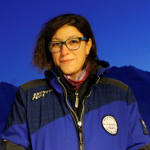 Born in Messina, she obtained her Ph.D. in Environmental Sciences at the University of Messina (2016) presenting the thesis PCB-oxidising bacteria from Arctic and Antarctic environments. She is a member of the eLTER H2020 Starting Communities project group and of the Association of Polar Early Career scientists APECS group.
Born in Messina, she obtained her Ph.D. in Environmental Sciences at the University of Messina (2016) presenting the thesis PCB-oxidising bacteria from Arctic and Antarctic environments. She is a member of the eLTER H2020 Starting Communities project group and of the Association of Polar Early Career scientists APECS group.
Currently, she is coordinating the PNRA18_00194 Microbial response to human Pollutants in polAr lakeS-MicroPolArS project and the INTERACT Mercury concentration and tolerant microorganisms in Arctic SNOW: new Bioremediation chALLenges – SNOW BALL project. She actively participates in national and international research projects on topics related to microbial ecology and biotechnology in polar environments. Particular interest is directed to the use of molecular tools for the study of biodiversity and the functionality of microbial communities, with attention to the ability to degrade polluting compounds. As part of projects focused on microbiology in polar environments, she has participated in sampling campaigns in the Arctic and Antarctica, as well as oceanographic cruises in the Mediterranean.
She specializes in: the treatment of microbiological samples of various origins; the use of molecular tools for bacterial biodiversity and DNA/RNA probe hybridization; analysis of microbial communities (metagenomics) by next-generation sequencing; differential expression and statistical validation of RNA-seq data; estimation of microbial biomass; screening of bacteria for the production of molecules of biotechnological interest and for the ability to degrade polluting compounds. She has had the opportunity to perfect her bioinformatics and laboratory skills also thanks to numerous stays in foreign institutes including Sequentia biotech (Barcelona, Spain), the University of Jyvaskyla (Finland), and the University of Valencia (Spain). She is the author or co-author of numerous articles in peer-reviewed journals, including Scientific Reports, Science of the Total Environment, Soil Biology and Biochemistry, PLOS One, Applied and Environmental Microbiology, Microbial Ecology, and more than 30 communications at national and international conferences.
![]() http://orcid.org/0000-0002-6013-4436 Research Gate
http://orcid.org/0000-0002-6013-4436 Research Gate
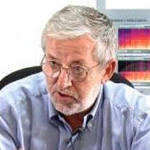 Degree in Physics from the University of Milan. Retired since 2013, he currently works as an associate researcher at CNR-ISAC where, since 2001, he has been Research Director. Recent research activity has been mainly carried out in the participation in two European projects:
Degree in Physics from the University of Milan. Retired since 2013, he currently works as an associate researcher at CNR-ISAC where, since 2001, he has been Research Director. Recent research activity has been mainly carried out in the participation in two European projects:
- ICE-ARC
- SPICES
The research topic for which the association with CNR-ISP was requested is the study of the characteristics and distribution of sea ice in polar areas with SAR images.
 She graduated in Chemistry in 1993 at the University of Rome "La Sapienza". From 1996 to 2019 she worked at the Water Research Institute (IRSA-CNR) as responsible of the laboratory for the analysis of Priority and Emerging Organic Micropollutants in Aquatic Ecosystems. Since 1 August 2019 she is a researcher at the Institute of Polar Sciences (ISP-CNR), as Head of the Secondary Office (RSS) in Rome (ISP Montelibretti and ISP Tor Vergata).
She graduated in Chemistry in 1993 at the University of Rome "La Sapienza". From 1996 to 2019 she worked at the Water Research Institute (IRSA-CNR) as responsible of the laboratory for the analysis of Priority and Emerging Organic Micropollutants in Aquatic Ecosystems. Since 1 August 2019 she is a researcher at the Institute of Polar Sciences (ISP-CNR), as Head of the Secondary Office (RSS) in Rome (ISP Montelibretti and ISP Tor Vergata).
Scientific interests:
Study of the environmental behaviour of organic micro- and macro-pollutants in aquatic and terrestrial ecosystems in temperate and polar areas, from the recognition of the sources, to the dynamics of diffusion, to the environmental impact. Particular attention was paid to hazardous and priority pollutants, according to the WFD (including PAHs, PCBs, organochlorine pesticides and their metabolites, PBDEs), endocrine disruptors (steroid hormones, surfactant metabolites, plasticizers) and emerging contaminants (pharmaceutical residues, antibiotics, personal care products, fragrances, perfluorinated compounds, new generation pesticides).
The research activities are aimed at:
- development and validation of advanced analytical methodologies (GC-MS, LC-MS and LC-MS / MS) for the characterization and monitoring of classes of organic pollutants in different environmental compartments (sea water, river water, ground water, wastewater, sediments, suspended particles, soil, organisms);
- study of the diffusion dynamics of legacy and emerging organic contaminants in polar marine ecosystems (Arctic, Antarctica) and their distribution in the atmosphere / ice / sea / sediment / biota compartments as a function of seasonal and climatic changes;
- partition studies of contaminants (speciation and bioavailability); accumulation / bioaccumulation / biomagnification; persistence and transformation (abiotic and biotic degradation), interaction and possible effects on the biological sphere at different trophic levels (microorganisms, organisms); ecotoxicological effects due to multiple contamination;
- circulation and physical-chemical characterization of organic matter in marine and transitional environments.
He has participated in over 25 oceanographic and sampling campaigns in the Mediterranean and Arctic environments.
Author of 60 ISI international publications, 70 publications / contributions with ISSN or ISBN, over 50 Technical Reports / National and International Project Reports.
Scopus - Author ID: 6507972161 Research Gate
 Tanita Pescatore has a degree in Ecobiology (LM) at the University of Rome “La Sapienza” and is attending a PhD in Ecology and Sustainable Management of Environmental Resources at the University of Tuscia, (Viterbo).
Tanita Pescatore has a degree in Ecobiology (LM) at the University of Rome “La Sapienza” and is attending a PhD in Ecology and Sustainable Management of Environmental Resources at the University of Tuscia, (Viterbo).
Her research activities are focused on the dynamics and fate of some organic pollutants (anionic surfactants and pesticides) in soils in different exposure scenarios, on their effect on the natural microbial community and on the behaviour of terrestrial organisms, in particular earthworms (E. foetida).
She has gained experience in the study of the occurrence, distribution, persistence and fate of organic micro-pollutants (PAHs, PCBs, NPs, pharmaceutical residues i.e. antibiotics) in different compartments (surface waters, sediments, suspended matter, soils) and on their possible interactions with biota, through the development and validation of selective analytical methodologies (e.g. GC-MS).
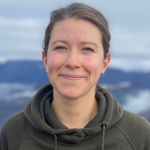 Graduated in Sciences and Technologies for Environment and Landscape at the University of Milano Bicocca, I am currently a PhD candidate in Polar Sciences at Ca' Foscari University of Venice. My research project focuses on water isotopes analysis of surface snow and Antarctic ice cores for reconstructing past temperatures. I have collaborated with CNR-ISP in Venice on developing Continuous Flow Analysis coupled with Cavity Ring Down Spectrometer system for continuous chemical and isotopic analysis. Additionally, I have contributed to instrument management and maintenance at the Dirigibile Italia station in Svalbard (Ny-Ålesund) during the winter season, and participated in the Ice Memory project by analyzing an alpine ice core. Currently, I am affiliated with CNR-ISP for cutting the Antarctic ice core retrieved from Little Dome C through the Beyond EPICA project.
Graduated in Sciences and Technologies for Environment and Landscape at the University of Milano Bicocca, I am currently a PhD candidate in Polar Sciences at Ca' Foscari University of Venice. My research project focuses on water isotopes analysis of surface snow and Antarctic ice cores for reconstructing past temperatures. I have collaborated with CNR-ISP in Venice on developing Continuous Flow Analysis coupled with Cavity Ring Down Spectrometer system for continuous chemical and isotopic analysis. Additionally, I have contributed to instrument management and maintenance at the Dirigibile Italia station in Svalbard (Ny-Ålesund) during the winter season, and participated in the Ice Memory project by analyzing an alpine ice core. Currently, I am affiliated with CNR-ISP for cutting the Antarctic ice core retrieved from Little Dome C through the Beyond EPICA project.
![]() Graduated with honours in the master's degree of Environmental Sciences at the University of Insubria, Italy, in 2020.
Graduated with honours in the master's degree of Environmental Sciences at the University of Insubria, Italy, in 2020.
She is currently attending the second year of PhD in Polar Sciences at the Ca'Foscari University, Italy, in collaboration with University of Insubria. Her active research activities include the direct and indirect effects of recent climate change on permafrost dynamics, with a particular focus on permafrost hydrology.
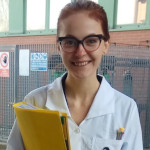 Got her Bachelor’s degree in Animal Care at the University of Padova with a thesis on Caffeine-induced Changes in a shoal behaviour of Tiger Barb (Puntigrus tetrazona). During her studies went to the University of South Bohemia, Institute of Complex Systems FFPW to participate in a project on Changes in shoal behaviour of aquarium fish in the presence of contaminants. Afterwards obtained her Master’s degree in Marine Sciences at the University of Milan-Bicocca with a thesis Picophytoplankton dynamics in the Northern Adriatic Sea (Gulf of Trieste). During the course of her studies went to Thudufushi, Maldives as a Marine Biologist. Moreover, did an experience at The National Institute of Oceanography and Applied Geophysics – OGS (Trieste) using optical (flow cytometry), molecular, and bioinformatics techniques for the study of planktonic microbes in the Gulf of Trieste and Venice. Currently works at the Institute of Polar Sciences (ISP-CNR) in Messina with a research project HALOVITA: anaerobic sulfur-respiring extreme halophilic archaea as model organisms for studying the criteria for a claim of active life detection.
Got her Bachelor’s degree in Animal Care at the University of Padova with a thesis on Caffeine-induced Changes in a shoal behaviour of Tiger Barb (Puntigrus tetrazona). During her studies went to the University of South Bohemia, Institute of Complex Systems FFPW to participate in a project on Changes in shoal behaviour of aquarium fish in the presence of contaminants. Afterwards obtained her Master’s degree in Marine Sciences at the University of Milan-Bicocca with a thesis Picophytoplankton dynamics in the Northern Adriatic Sea (Gulf of Trieste). During the course of her studies went to Thudufushi, Maldives as a Marine Biologist. Moreover, did an experience at The National Institute of Oceanography and Applied Geophysics – OGS (Trieste) using optical (flow cytometry), molecular, and bioinformatics techniques for the study of planktonic microbes in the Gulf of Trieste and Venice. Currently works at the Institute of Polar Sciences (ISP-CNR) in Messina with a research project HALOVITA: anaerobic sulfur-respiring extreme halophilic archaea as model organisms for studying the criteria for a claim of active life detection.
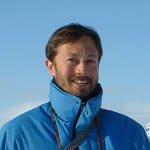 Graduated in Natural Sciences in 1984.
Graduated in Natural Sciences in 1984.
CNR researcher since 1994 at the Institute of Biomedical Technologies (CNR-ITBM). Since 2002 at the Institute on Atmospheric Pollution (CNR-IIA). From 2019 to the Institute of Polar Sciences (CNR-ISP).
CNR macro areas of reference: Earth and Environment.
Research interests:
- environmental and geographical knowledge organization
- qualitative and quantitative analysis of vertebrate fauna
- Geographic Information Systems
- military geosciences
He currently carries out research on conceptual development and technological innovation in the field of knowledge organization, controlled terminology and multilingual thesauri for the environment. He collaborated, among others, with the United Nations Environment Program (UNEP), with the European Environment Agency (EEA), with the American Environmental Protection Agency (US EPA). He is co-author of the UNEP-Infoterra Thesauri, GEMET, GEneral Multilingual Environment Thesaurus and EARTh, Environmental Applications Reference Thesaurus.
Scopus - Author ID: 25121723300 ![]() http://orcid.org/0000-0001-7315-3364
http://orcid.org/0000-0001-7315-3364
More...
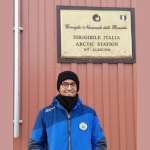 Graduated in Analysis and Management of the Environment from the University of Bologna, he began his collaboration with the Institute of Polar Sciences in 2019, conducting a study on identifying biomass burning events in Ny-Ålesund between 2010 and 2020. Currently a PhD student in Polar Sciences at Ca' Foscari University of Venice, he works at the ISP in Bologna. He mainly focuses on studying the optical and physical properties of atmospheric particulate matter, with a special focus on the Arctic region. He uses passive techniques like solar and lunar photometry, combining them with in-situ measurements of the scattering and absorption coefficients of solar radiation by aerosols.
Graduated in Analysis and Management of the Environment from the University of Bologna, he began his collaboration with the Institute of Polar Sciences in 2019, conducting a study on identifying biomass burning events in Ny-Ålesund between 2010 and 2020. Currently a PhD student in Polar Sciences at Ca' Foscari University of Venice, he works at the ISP in Bologna. He mainly focuses on studying the optical and physical properties of atmospheric particulate matter, with a special focus on the Arctic region. He uses passive techniques like solar and lunar photometry, combining them with in-situ measurements of the scattering and absorption coefficients of solar radiation by aerosols.
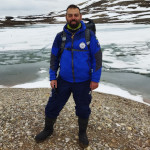 He is currently a fixed-term Technical Collaborator (VI level) (from July 2023) within the PNRR EMBRC project Unlocking the Potential for Health and Food from the seas - EMBRC-UP. Since 2021 he has also been a PhD student in Polar Sciences at the Ca' Foscari University of Venice. In 2014 he obtained a degree in Biology and Ecology of the Coastal Marine Environment at the University of Messina, with the thesis entitled Tolerance to heavy metals and polychlorinated biphenyls in Arctic bacteria (Continental Norway). During the preparation of his degree thesis he spent 4 months at the University of Valencia (Spain) to acquire new laboratory techniques. He has participated in several sampling activities in the Arctic, Antarctica and the Mediterranean for the collection and processing of samples for microbiological studies. In particular, the research interest is aimed at the study of microbial populations in aquatic environments (sea, freshwater and hyperhaline brine), sediments and permafrost. Among the techniques used: estimation of prokaryotic biomass by counting and morphometric and morphological analysis, through the application of microscopic techniques in epifluorescence and image analysis; analysis of the prokaryotic community using CARD-FISH and next generation sequencing; estimation of physiological profiles of prokaryotes at community level using BIOLOG Ecoplate; quantification of viable cells through the use of biomarkers (LIVE/DEAD and CTC); screening of bacteria for the ability to degrade polluting organic compounds. He is the author or co-author of approximately 25 articles in international journals.
He is currently a fixed-term Technical Collaborator (VI level) (from July 2023) within the PNRR EMBRC project Unlocking the Potential for Health and Food from the seas - EMBRC-UP. Since 2021 he has also been a PhD student in Polar Sciences at the Ca' Foscari University of Venice. In 2014 he obtained a degree in Biology and Ecology of the Coastal Marine Environment at the University of Messina, with the thesis entitled Tolerance to heavy metals and polychlorinated biphenyls in Arctic bacteria (Continental Norway). During the preparation of his degree thesis he spent 4 months at the University of Valencia (Spain) to acquire new laboratory techniques. He has participated in several sampling activities in the Arctic, Antarctica and the Mediterranean for the collection and processing of samples for microbiological studies. In particular, the research interest is aimed at the study of microbial populations in aquatic environments (sea, freshwater and hyperhaline brine), sediments and permafrost. Among the techniques used: estimation of prokaryotic biomass by counting and morphometric and morphological analysis, through the application of microscopic techniques in epifluorescence and image analysis; analysis of the prokaryotic community using CARD-FISH and next generation sequencing; estimation of physiological profiles of prokaryotes at community level using BIOLOG Ecoplate; quantification of viable cells through the use of biomarkers (LIVE/DEAD and CTC); screening of bacteria for the ability to degrade polluting organic compounds. He is the author or co-author of approximately 25 articles in international journals.
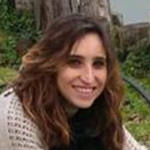 She is graduated in Ecobiology (LM) from the University of Rome "La Sapienza" and has a PhD in Environmental and Evolutionary Biology from the same university. His research activities are focused on organic contaminants (eg drugs, antibiotics, polycyclic aromatic hydrocarbons, nonylphenols, bisphenol, etc) interactions with natural microorganisms. She gained experience in setting up biodegradation microcosms to evaluate both the environmental persistence of selected contaminants and their effects on natural microbial communities structure and functioning (e.g. PLFA and qPCR analyses).
She is graduated in Ecobiology (LM) from the University of Rome "La Sapienza" and has a PhD in Environmental and Evolutionary Biology from the same university. His research activities are focused on organic contaminants (eg drugs, antibiotics, polycyclic aromatic hydrocarbons, nonylphenols, bisphenol, etc) interactions with natural microorganisms. She gained experience in setting up biodegradation microcosms to evaluate both the environmental persistence of selected contaminants and their effects on natural microbial communities structure and functioning (e.g. PLFA and qPCR analyses).
Recent research activities are focused on the spread of genes that confer resistance to antibiotics (ARGs) among natural microbial communities, and the correlation between this latter with the antibiotic environmental concentrations. She also works on the development and validation of analytical methodologies (e.g. LC-MS / MS) for the determination of organic pollutants in different environmental matrices.
Scopus - Author ID: 57192521577
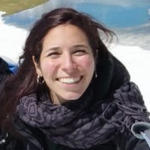 She obtained her Master's degree in Ecobiology (environmental and evolutionary biology) at the University of Rome La Sapienza. She took part in different projects of scientific research in Italy and abroad, mainly focused on the study of biodiversity, through genetic and morphological studies, and on the environment through remote monitoring systems, having the opportunity to deal with several topics and acquire different skills. She is currently a research fellow in the 'NADC National Antarctic Data Center' project, funded by the PNRA. She works at the Institute of Polar Sciences of the CNR (ISP-CNR) in Rome, where she is in charge of data management and managing the IT infrastructure for cataloguing and sharing data and metadata related to scientific projects mainly related to climatology, radiation and marine biology carried out in Antarctica.
She obtained her Master's degree in Ecobiology (environmental and evolutionary biology) at the University of Rome La Sapienza. She took part in different projects of scientific research in Italy and abroad, mainly focused on the study of biodiversity, through genetic and morphological studies, and on the environment through remote monitoring systems, having the opportunity to deal with several topics and acquire different skills. She is currently a research fellow in the 'NADC National Antarctic Data Center' project, funded by the PNRA. She works at the Institute of Polar Sciences of the CNR (ISP-CNR) in Rome, where she is in charge of data management and managing the IT infrastructure for cataloguing and sharing data and metadata related to scientific projects mainly related to climatology, radiation and marine biology carried out in Antarctica.
 Ministero dell'Universita e Ricerca
Ministero dell'Universita e Ricerca
Programma Ricerche Artico
Programma Nazionale di Ricerca in Antartide
 Ministero degli Affari Esteri e della Cooperazione Internazionale
Ministero degli Affari Esteri e della Cooperazione Internazionale
L'Italia e l’Artico
L’Italia e l’Antartide
CNR-ISP
National Research Council
Institute of Polar Sciences
c/o Scientific Campus - Ca' Foscari University Venice - Via Torino, 155 - 30172 VENEZIA MESTRE (VE)
Phone: +39 041 2348547 - E-mail: protocollo.isp AT pec.cnr.it
Fax: +39 041 2348 549 - Codice Fiscale: 80054330586 - P.I.:02118311006
Unless otherwise indicated, the content of this site is licensed : Attribution Non Commercial Share Alike 4.0 International (CC BY-NC-SA 4.0)
Privacy policy e Cookie policy - Transparent administration (CNR)








